(Boston) – Jessica Kramer, assistant professor of occupational therapy at Boston University College of Health & Rehabilitation: Sargent College and The Arc of the United States have been approved for a $50,000 funding award by the Patient-Centered Outcomes Research Institute (PCORI). The award will support a project identifying the mental health research priorities of young adults with intellectual and/or developmental disabilities (IDD).
Kramer and The Arc will use the funds provided through PCORI’s Pipeline to Proposal Awards program to build a partnership of individuals and groups who share a desire to advance patient-centered outcomes research focused on finding optimal treatment approaches for young adults with IDD. Self-Advocates Becoming Empowered (SABE) will also play a significant partnership role in this project.
Pipeline to Proposal Awards enable individuals and groups that are not typically involved in clinical research to develop the means to develop community-led funding proposals focused on patient-centered comparative effectiveness research (CER). Established by the non-profit PCORI, the program funds help individuals or groups build community partnerships, develop research capacity, and hone a comparative effectiveness research question that could become the basis of a research funding proposal to submit to PCORI or other health research funders.
This project will build a national partnership between young adults ages 18-30 with IDD and their families, service providers, and researchers to identify mental health research priorities for young adults with IDD. This partnership will seek consensus on mental health priorities and corresponding intervention needs for further exploration. Kramer and The Arc’s vision is to establish a sustainable partnership that is poised to engage in patient-driven mental health research that will improve support and facilitate the lifelong wellbeing of people with IDD.
“The Pipeline to Proposal Awards program is a manifestation of PCORI’s commitment to the meaningful involvement of patients, caregivers, clinicians, and other stakeholders in all our research endeavors,” said Jean Slutsky, PA, MSPH, PCORI’s Chief Engagement and Dissemination Officer. “It provides support to those who may not otherwise have an opportunity to contribute to the field of comparative effectiveness research. We’re pleased to follow the awardees’ progress as they develop partnerships and begin to form research questions.”
PCORI is an independent, nonprofit organization authorized by Congress in 2010 to fund comparative effectiveness research that will provide patients, their caregivers, and clinicians with the evidence needed to make better-informed health and healthcare decisions. PCORI is committed to seeking input from a broad range of stakeholders to guide its work.
CONTACTS:
Boston University College of Health & Rehabilitation: Sargent College
Stephanie Rotondo, (617) 353-7476, rotondos@bu.edu
The Arc of the United States
Kristen McKiernan, (202) 534-3712, mckiernan@thearc.org
#####
 Boston University College of Health and Rehabilitation Sciences: Sargent College is an institution of higher education which fosters critical and innovative thinking to best serve the health care needs of society through academics, research, and clinical practice. As reported by U.S. News and World Report, its graduate programs in Speech-Language Pathology and Physical Therapy rank in the top 6% of programs while Occupational Therapy is #1 in the nation. The College has more than 25 on-campus research facilities and clinical centers and offers degree programs in occupational therapy, physical therapy, speech, language and hearing sciences, health science, athletic training, human physiology, behavior and health, and nutrition. For more information, visit bu.edu/sargent.
Boston University College of Health and Rehabilitation Sciences: Sargent College is an institution of higher education which fosters critical and innovative thinking to best serve the health care needs of society through academics, research, and clinical practice. As reported by U.S. News and World Report, its graduate programs in Speech-Language Pathology and Physical Therapy rank in the top 6% of programs while Occupational Therapy is #1 in the nation. The College has more than 25 on-campus research facilities and clinical centers and offers degree programs in occupational therapy, physical therapy, speech, language and hearing sciences, health science, athletic training, human physiology, behavior and health, and nutrition. For more information, visit bu.edu/sargent.
Founded in 1839, Boston University is an internationally recognized institution of higher education and research. With more than 33,000 students, it is the fourth-largest independent university in the United States. BU consists of 17 schools and colleges, along with a number of multi-disciplinary centers and institutes integral to the University’s research and teaching mission. In 2012, BU joined the Association of American Universities (AAU), a consortium of 62 leading research universities in the United States and Canada.
The Arc advocates for and serves people with IDD, including Down syndrome, autism, Fetal Alcohol Spectrum Disorders, cerebral palsy and other diagnoses. The Arc has a network of more than 650 chapters across the country promoting and protecting the human rights of people with IDD and actively supporting their full inclusion and participation in the community throughout their lifetimes and without regard to diagnosis.



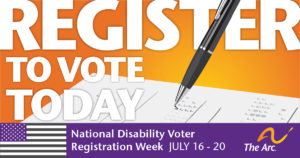
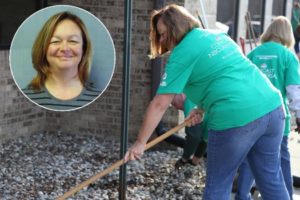
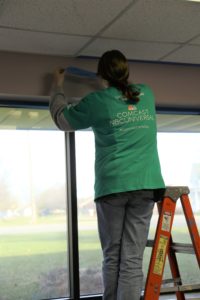
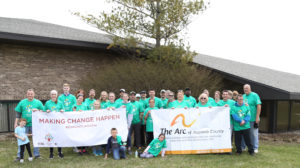
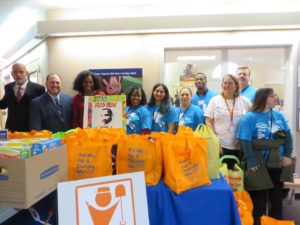 For The Arc, the quote from Martin Luther King, Jr. – “Everybody can be great because everyone can serve” – has a special meaning. Many perceive people with disabilities as the ones in need of service – but in reality, they are an important part of civic engagement at the state, local, and national levels. That’s why we’re grateful to have been selected for a third year by the Corporation for National and Community Service to execute volunteer projects for the annual Martin Luther King, Jr. Day of Service.
For The Arc, the quote from Martin Luther King, Jr. – “Everybody can be great because everyone can serve” – has a special meaning. Many perceive people with disabilities as the ones in need of service – but in reality, they are an important part of civic engagement at the state, local, and national levels. That’s why we’re grateful to have been selected for a third year by the Corporation for National and Community Service to execute volunteer projects for the annual Martin Luther King, Jr. Day of Service.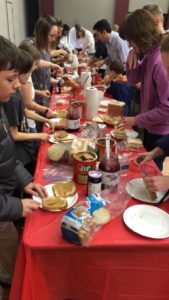 Our 2018 grantees included
Our 2018 grantees included 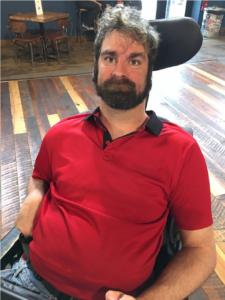 My name is Steve, I live in Roanoke, Virginia and I have cerebral palsy. I like to do the kinds of activities many people do — go out to the mall, restaurants, concerts, bars, and travel to places like the beach. I am an advocate with people with disabilities, I go to a lot of events to talk with members of the legislature and other government officials. I recently attended an event with U.S. Senator Kaine, and a Town Hall Meeting with Delegate Rasoul. I also serve on several state boards.
My name is Steve, I live in Roanoke, Virginia and I have cerebral palsy. I like to do the kinds of activities many people do — go out to the mall, restaurants, concerts, bars, and travel to places like the beach. I am an advocate with people with disabilities, I go to a lot of events to talk with members of the legislature and other government officials. I recently attended an event with U.S. Senator Kaine, and a Town Hall Meeting with Delegate Rasoul. I also serve on several state boards.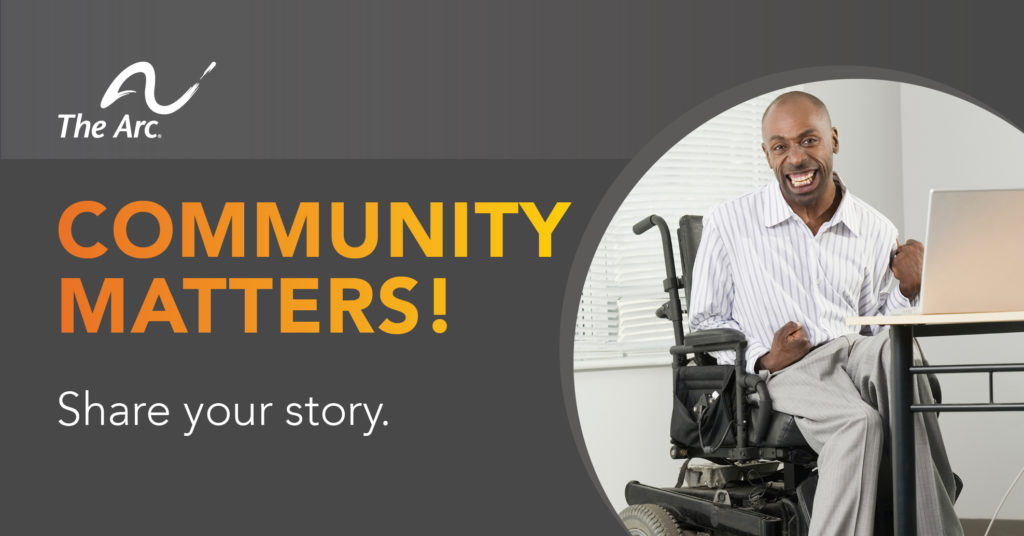
 Boston University College of Health and Rehabilitation Sciences: Sargent College is an institution of higher education which fosters critical and innovative thinking to best serve the health care needs of society through academics, research, and clinical practice. As reported by U.S. News and World Report, its graduate programs in Speech-Language Pathology and Physical Therapy rank in the top 6% of programs while Occupational Therapy is #1 in the nation. The College has more than 25 on-campus research facilities and clinical centers and offers degree programs in occupational therapy, physical therapy, speech, language and hearing sciences, health science, athletic training, human physiology, behavior and health, and nutrition. For more information, visit
Boston University College of Health and Rehabilitation Sciences: Sargent College is an institution of higher education which fosters critical and innovative thinking to best serve the health care needs of society through academics, research, and clinical practice. As reported by U.S. News and World Report, its graduate programs in Speech-Language Pathology and Physical Therapy rank in the top 6% of programs while Occupational Therapy is #1 in the nation. The College has more than 25 on-campus research facilities and clinical centers and offers degree programs in occupational therapy, physical therapy, speech, language and hearing sciences, health science, athletic training, human physiology, behavior and health, and nutrition. For more information, visit 





